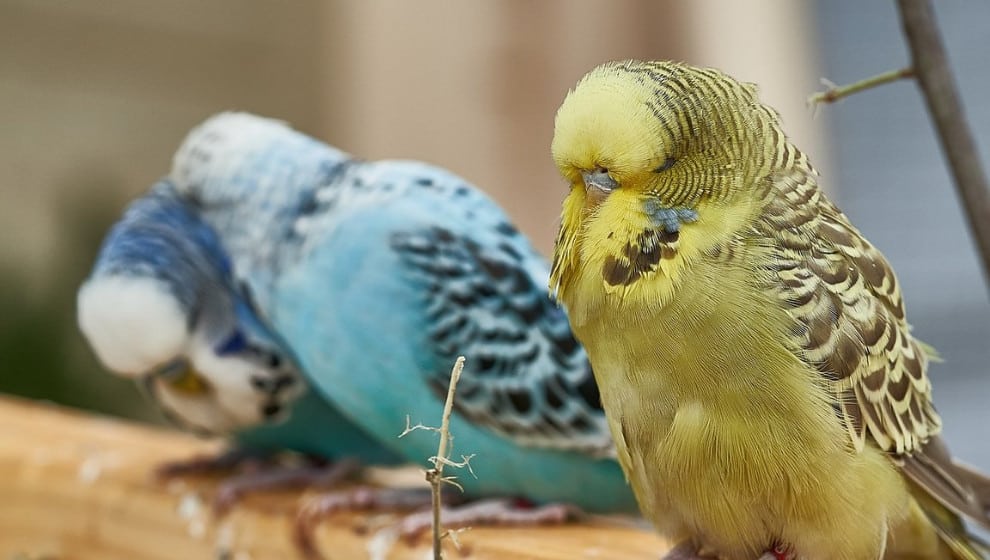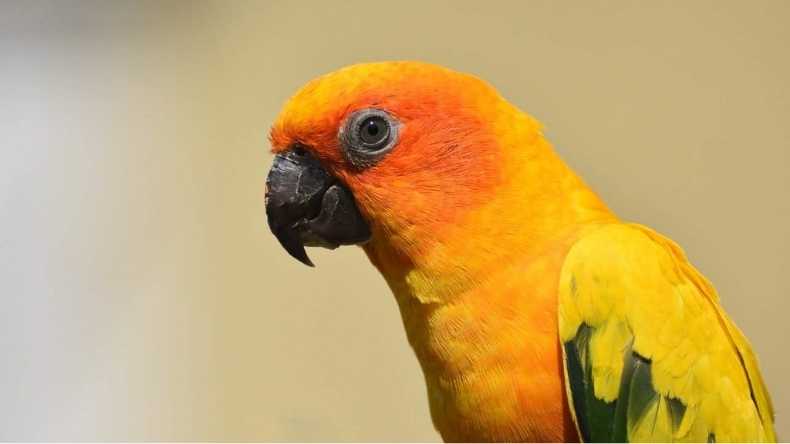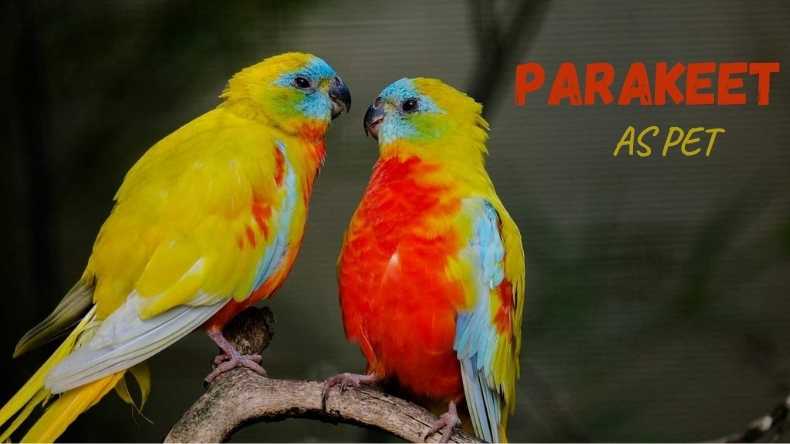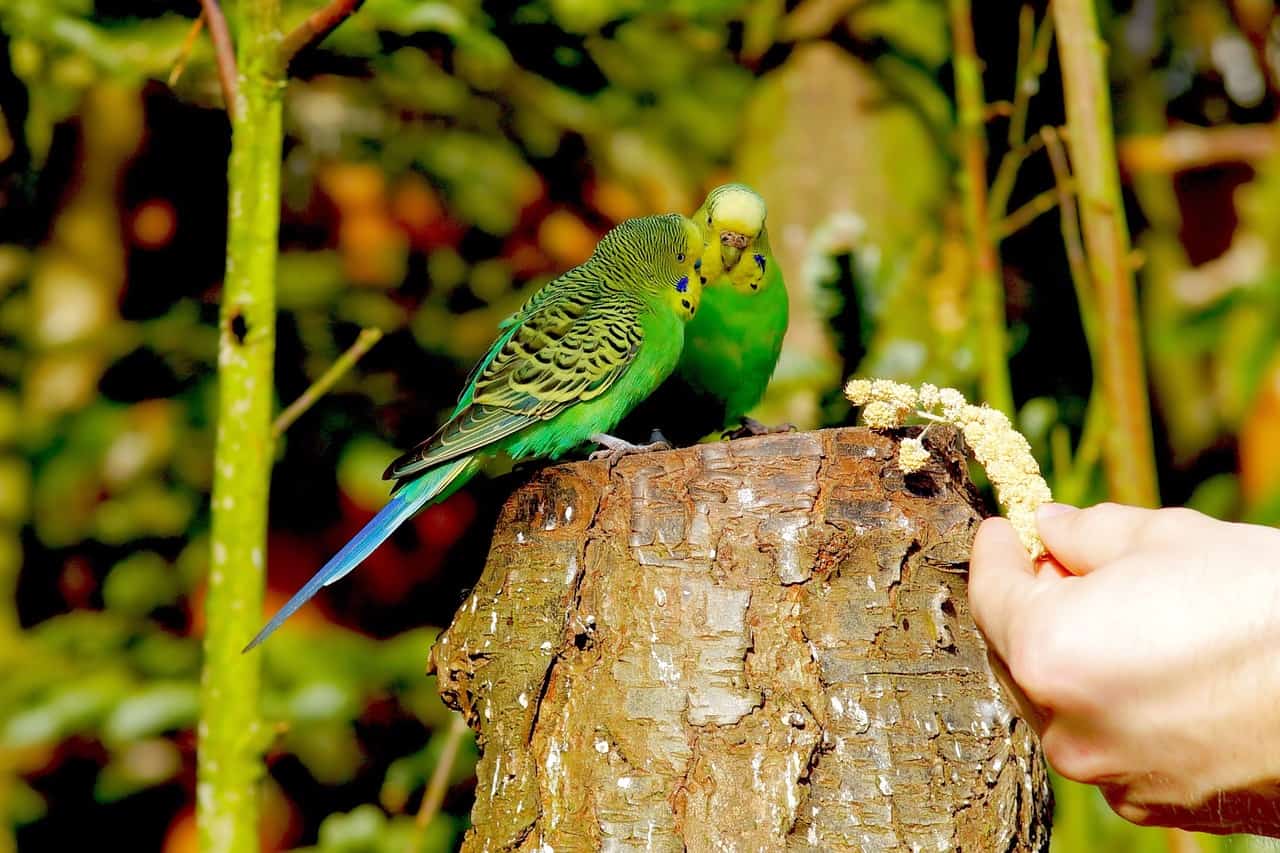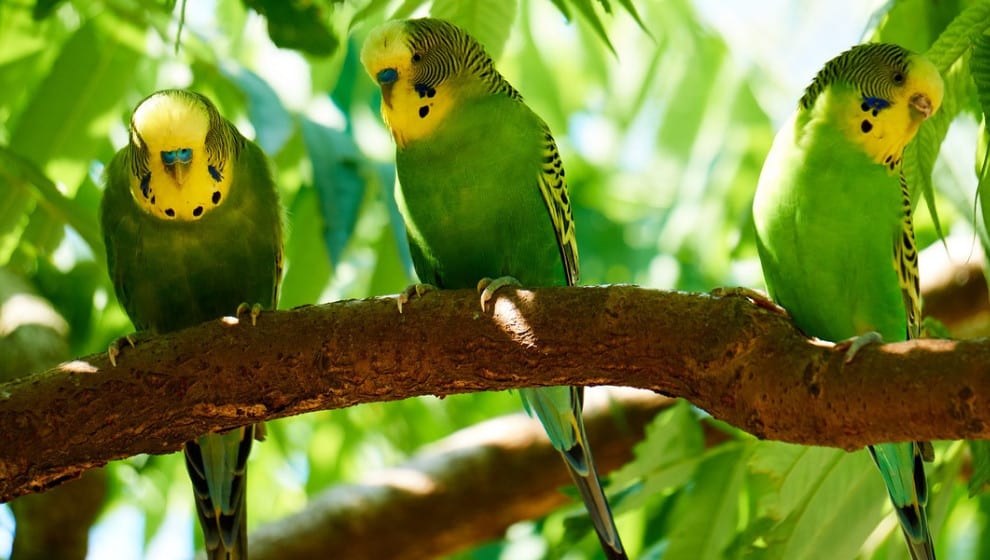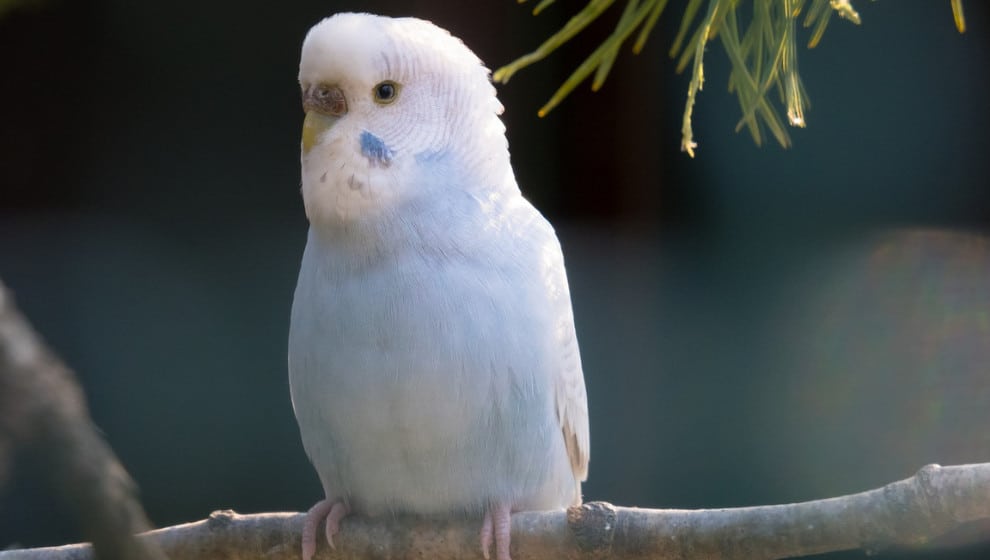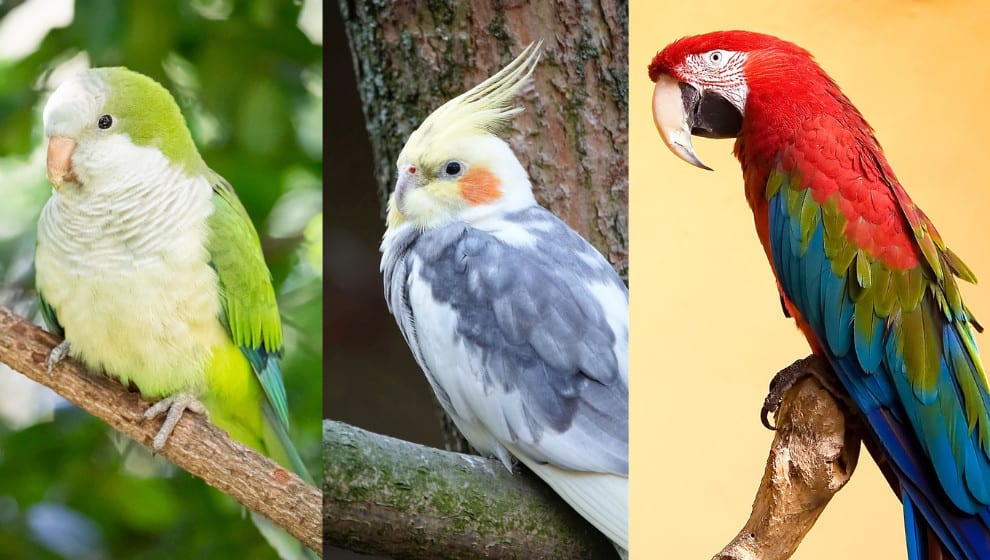Parakeets (commonly known as “budgies”) are very social little birds that deserves as much attention, care, and love as larger parrots. Parakeets can live between 7 to 15 years, and this life span can be even less if they are not given appropriate bird care.
For your feathered friend in the cage, you have to take out some time to give your proper attention and care to them. Allegedly, it is seen that budgies are treated as ‘throw away’ bird pets because they are inexpensive.
Your budgie is prone to many diseases such as fatty tumours and liver, obesity, scaly face, intestinal parasite, and foot disorders. These diseases required proper veterinary care as well as lots of affection and attention from their owners.
It is up to the owner to take care of the health of their parakeet by maintaining their balanced diet, personal hygiene, and freshwater supply to them. You can make their lifespan better by giving a quality life to your budgie.
In this article, we will discuss some common health problems related to parakeets that every parakeet owner must understand so that you can consult a veterinarian if you see your budgie showing any symptom. Following topics will be the discussion of our article.
Once you become familiar with your budgie, you will quickly notice when anything other than normal is happening to them. For this, you do not have to be an expert to diagnose the disease specifically, but you can spot when your parakeet acts out of character.
It would help if you examined your parakeet yourself regularly to check for problems such as lice or any wounds. You must have to keep an eye on your budgie any to check for any symptoms and call a vet promptly as soon as you spot a problem.
Table of Contents
Parakeet Parasite
Your parakeet can effect by any external or internal parasite. Some of these parasites like ticks are easy to spot while handling; mites will be spotted when your budgie starts being affected by them. There can be many others that are identifiable after parakeet start showing some symptoms.
Parakeet Lice
Mallophaga (feather eating pests) are rare in budgies, but they can easily catch them from wild birds in the aviary. Lice are easier to spot but can hide among the parakeet’s feathers. The very first sign of these lice is violent scratching and feather shaking by your parakite every few minutes.
Parakeet Red Mites
Red mites’ manifestation will cause great discomfort to your budgie. Red mites are not easy to spot with the naked eye. These mites are nocturnal and attack birds only at night. In manifestation get serious, your budgie will lose a lot of blood, resulting in the weak immune system, exposing your parakeet to all kinds of diseases.
As red mites are very difficult to spot due to size and nocturnal, you can use double-sided tape to confirm their presence. Mites will get stick to the tape that will confirm the presence of red mites, and you can do your measure to clean these mites then.
Parakeet Scaly Face Mites
A tiny skin burrowing mite, Knemidokoptes pilae, causes scaly face in the birds. It badly affects the beak and cere of bird and causes problems in their vent and leg area. The first sign you will spot is constant scratching by your budgie; then, you will observe crusty growth on the cere and them on the beak as the mites burrow inside. If it is not treated properly, it will affect the parakeet’s whole body and lead to severe handicap.
Parakeet Worms
Ascaris roundworms can affect your parakeet. These roundworms live and breed in the guts of their hosts. Parakeet is already very small in size, and these parasites will steal all of the nutrients from your budgie’s gut. That will cause malnutrition in parakeet leading to paralysis and death.
In all of these conditions, you must have to consult your vet immediately.
Parakeet Disease Symptoms
Following are the signs that indicate some form of illness in your budgie.
- Sleeping During The Day: This can be the sign of an infestation of feather mites that keep your budgie awake the whole night with their blood-sucking attentions.
- Fluffed Up Feathers: Fluffed up feather indicates that your bird is cold. There can be two reasons for the cold. Either your parakeet is unwell, or the cage is too cold for it.
- A Change In Perching Behaviour: If your budgie has started perching on the floor, it might be due to its hurt wing or too weak to perch.
- An Increase In Lethargy: A sign of lethargy in parakeets is that they will lose interest in the things that usually stimulate them.
- Droppings: Parakeet’s Normal Healthy poop is like burnt popcorn. If you do not find it like normal, it is a sign that something is wrong. (Note: some pellet or food might change the colour of dropping, so you should consider this).
- Loose Droppings: Indicate the chances of diarrhoea. Diarrhoea can be due to eating anything in excess or may because of parasites or any disease.
- Discoloured Droppings:
- Red: It is due to the presence of blood in the droppings that might be the result of an intestinal problem (but you should check before any conclusion that if your budgie has eaten red berries, beetroot or cherries).
- Grey: Grey colouration in the poop indicates that there can be a problem with its pancreas.
- Green: Green colour droppings of a parakeet whose normal droppings are light grey or grey-brown indicate that budgie is not eating enough or can also be due to the stress.
- Hot Feet: Hot feet are usually due to kidney problems. However, obese parakeet will also have hotter feet, so you should reduce their fatty seeds or snacks and healthy food intake. An over-exercised and stressed parakeet will also have its feet hot, so before making any judgement, wait until it gets to calm down.
Parakeet Diseases
Parakeets can fall victim to a variety of illness and diseases. You should always consult a veterinarian to make the diagnosis. The thing you have to do is to identify the illness. Here is the list of general diseases that parakeets suffer.
Psittacosis (Parrot Fever)
This fever is very well-known, and most people have heard about it because it is transmissible and can be transmitted to humans. Chlamydophia psittaci is the organism responsible for psittacosis in birds. The affected bird can pass on the disease via saliva and droppings.
To prevent the spread of the disease, the first thing to do is keep the cage clean. If a parakeet succumbed to the fever, it would show most of the symptoms mentioned above. Gummed up cere, breathing problems, ruffled feathers, and loose green droppings are the common symptoms.
Your ill parakeet needs to visit a vet to verify the disease. If fever is confirmed, the parakeet needs to be isolated as well as the cage. Then monitor the symptoms of your budgie and give the prescribed drugs by the vet.
Avian Gastric Yeast (AGY) Infection
It is also known as megabacteriosis or macrorhabdiosis. It is a highly contagious infection and very difficult to spot in the early stages. It incubates within the parakeets without showing any symptom. Early symptoms of this infection are that you will observe your budgie losing weight although eating well. This is because AGY hinders digestion. The food may spot in their droppings undigested, or parakeet may vomit it out.
This disease was previously thought of as bacterial, but now its cause is confirmed as yeast. But bacteria also take advantage of this condition and spread secondary infection. The condition caused by this combination of bacteria and yeast is known as “wasting disease”.
A vet will administer the required drug and will recommend some changes in the diet to aid recovery. You still need to keep an eye on your budgie because this nasty condition can bloom again after recovery.
Candidiasis
Candidiasis is another yeast infection that affects parakeets. This condition appears in the form of thrush and can spread anywhere in the budgie’s digestive system. Symptoms of this condition are similar to AGY, including vomiting, loose droppings, etc.
Sour Crop
This condition is also suspected to be caused by members of the yeast family. In this condition, parakeet will have swollen crop, and vomit will be sour smelling. Like other yeast infections, this condition is also treated by killing the suspected microorganism.
Sneezing
Coughing or sneezing is due to the cold or an infection in the upper respiratory tract. Sneezing will accompany other symptoms, including a runny nose or dried nasal discharge that will be caked on the parakeet’s cere. A parakeet’s sneeze is not like that of humans, but you will hear a noise not heard before. It is the sign that you should visit a vet.
Other symptoms will also occur, along with sneezing or coughing, such as panting, listlessness, and spending more time on the bottom of the cage. You will observe your budgie getting short of breath and see it doing strange things like stretching neck upward to get oxygen.
There are several bacteria responsible for the parakeet’s cold. You can use a wet tissue to clean the nasal discharge, and taking your budgie to a vet as soon as possible is the best thing you can do.
Wounds
If a small wound is not treated properly, it can lead to septicemia (blood poisoning). An illness like this can take a parakeet’s life very quickly. If you see any blood spots on its body r on the cage, check your budgie to examine the exact spot. Any injury as a flesh wound should be reported immediately to the vet for antibiotic treatment.
Obesity
If your parakeet is fat, that doesn’t mean it is healthy. These obese parakeets are suspected of having diseases like fatty tumour or lipomas usually developed in their abdominal area. If you do not change your parakeet’s diet in this condition, obesity will lead to serious fatal conditions like hepatic lipidosis or cirrhosis. Obesity occurs when parakeets are only fed on the seeds. Adding pellets, fresh fruits, or whole wheat bread to your parakeet’s diet can prevent this condition.
Verdict
If you are a bird pet owner, having basic knowledge about their health and diseases is a must for you as even small illness can lead to severe or fatal conditions in these small creatures. To spot and examine the symptoms and consulting a vet on time is very important for their better health. Along with proper care and attention, you should also maintain their diet and hygiene.

